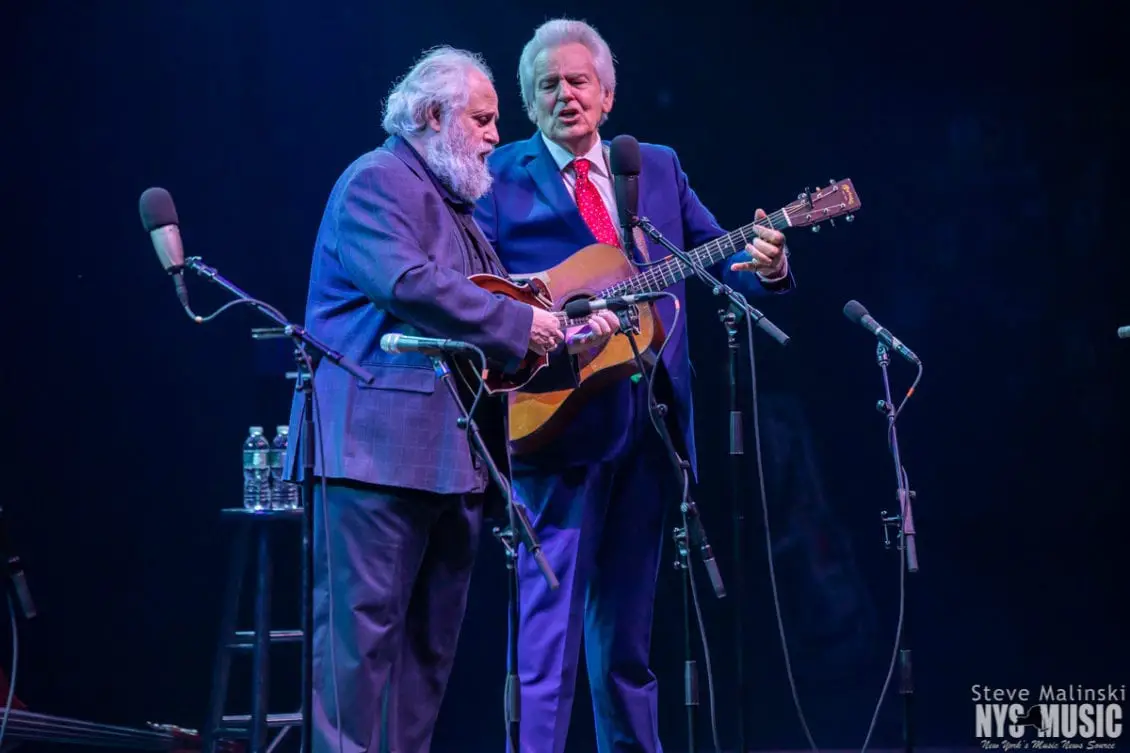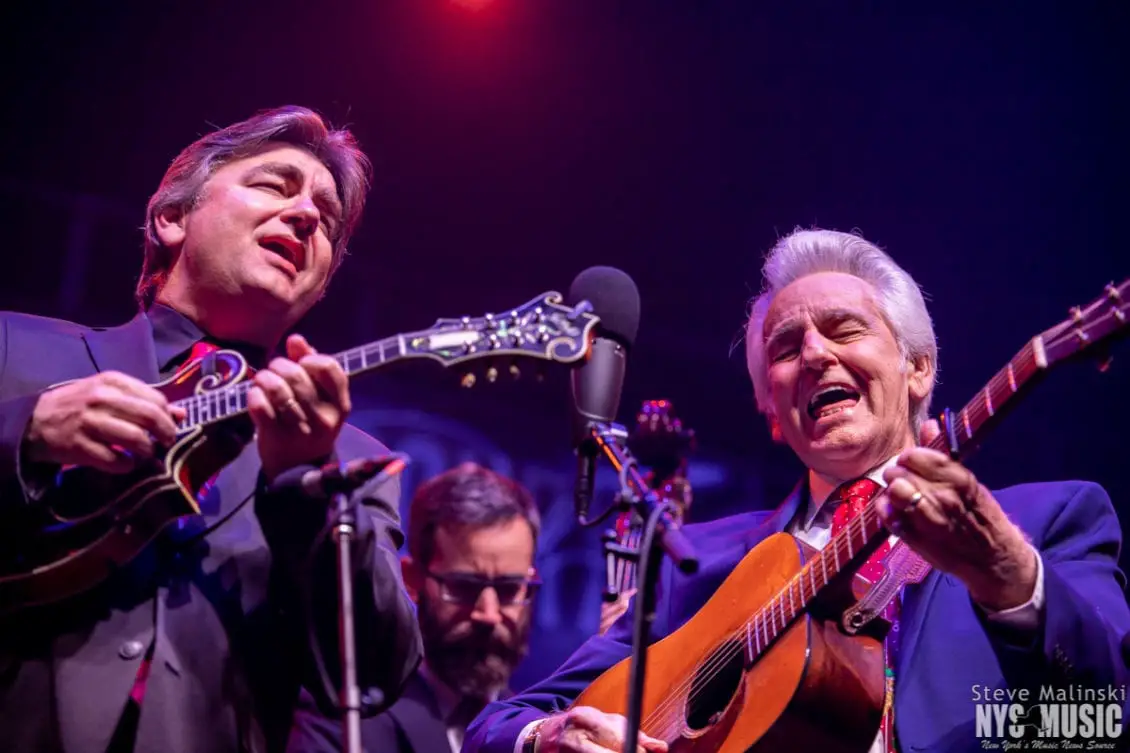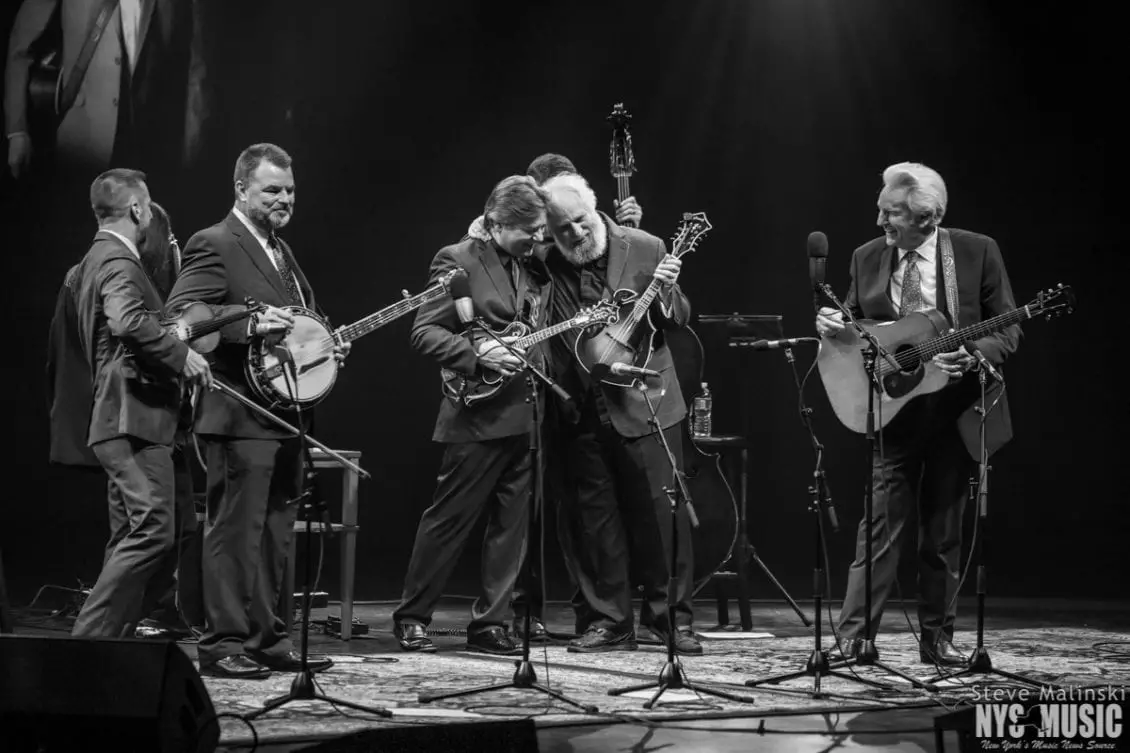Continuing to carry the torch of the pre-bluegrass brother duet, Del McCoury and David “Dawg” Grisman are teaming up once again in the city where it all began. On Saturday, March 3, Del and Dawg will take the stage at The Egg in Albany to pay homage to the traditional music that continues to hold such high value within the bluegrass community. It goes without question that the roots of bluegrass go right through Del McCoury’s life story, making a few stops with some very interesting and influential people along the way. Interview


Guitarist and singer Del McCoury is one of the few living legends still around to tell the story. He was first introduced to the music of Lester Flatt and Earl Scruggs while he was just a young boy. But by the early 1960s, he was joining Bill Monroe’s band, The Blue Grass Boys, and appearing on the Grand Ole Opry. Del’s musical partnerships are numerous throughout the years, but the one with mandolinist David Grisman is very unique and special to fans near and far.
McCoury took the time to speak with NYS Music about the history of collaborating with David Grisman, learning from “Father of Bluegrass” Bill Monroe and passing on the bluegrass bug to his children.
Jen Foster: Your show at The Egg on March 3 with Grisman marks the 52nd year that you have been collaborating. How does it feel to still be playing after all these years, and how did it all get started?
Del McCoury: We get along pretty good, we do. I guess I met David in 1963 in New York City. We played that show over there in Troy. That was actually the first time I got to associate with David. It wasn’t too long before he moved out to California. I did a tour of Japan and I was on my way back and we did a show in San Francisco, and then I got to talk a lot with him there too. It was a long spell in there where I didn’t get to see David though.

 JF: Both you and David have children who play professionally. How important is it to you that they carry the torch for all the legends who have since passed?
JF: Both you and David have children who play professionally. How important is it to you that they carry the torch for all the legends who have since passed?
DM: Well you know that’s really a great thing. I never really thought that much about it, but it’s true. A lot of my son’s inspiration came from Bill Monroe. I played a show in New York City, can’t really remember the year. I think Ronnie was 13 or 14, and I took him with me because he had a vacation from school. Bill took a liking to Ronnie. It was Bill’s show and my band played too. So in the green room, Bill put his hat on Ronnie, and put his mandolin on Ronnie’s lap and said, “Go ahead and play me one!” He had been playing fiddle in school and he was doing really great. But he was also in Little League baseball. And he was a really good player. There had come this recital and he didn’t go because he had a baseball game. His teacher was really upset because she said he was her star player. He really started playing mandolin then too. He loved baseball though. But this was the next big thing to happen to him, meeting Bill Monroe. He never really put that mandolin down after that. My other son Rob started playing young. He picked up the banjo when he was about 9 years old. He actually played my banjo from when I played with Bill Monroe. Rob just took to that banjo. And he listened to Earl Scruggs. And I told him, “If you’re going to play banjo, you gotta listen to the greatest guy, Earl Scruggs.” Of course, he already knew that. He also looked up to Sonny Osborne. Who of course, also looked up to Earl. So I guess it all really comes down to lookin’ up to Earl.

 JF: What are some of your first memories of playing with Grisman?
JF: What are some of your first memories of playing with Grisman?
DM: I started booking dates in California with my own band, and when I was out there, David started calling me up, and he’d say, “Look, I know you’re going to be out here, why don’t you set aside a little time and come by the studio.” By this time he had his own recording company. “Lets record some stuff,” he said. We would record all night long because that was the only time left in the schedule. We did a lot of recording that way. As soon as he got his label, he had a tape of that show in Troy we first did. He said, “I think we can clean that tape up and make a record of it.” He asked my permission and said he would pay me for my part in it. I said go ahead if you want. He called that record Early Dawg. It was me and David and my brother Jerry. Brother Jerry was playing bass with Red Allen & The Kentuckians which was a hardcore Bluegrass band. And David was playing mandolin with them at the time. So Jerry was our go-between. So it was me and brother Jerry, David and Winnie Winston who played banjo. So all the stuff we did was just the four of us on that gig. We did a tour too one time, sometime in the 80s. He wanted to come east and do a bluegrass tour. He had already been playing and recording jazz, but he wanted to come to the East Coast and do a tour. Me and my band went with David and did a whole bunch of dates. My two sons played with us. David and Ronnie both played mandolin so we had twin mandolins playing with us. It was an interesting tour. I’m sure he’s got that on tape somewhere.
JF: How important is it to you that traditional bluegrass and its history continue to be discussed and admired?
DM: I can use myself as an example. That’s the only thing there was when I was little – Bill Monroe and the traditional sound. Of course, I just took to that sound and always had a band that had the same makeup as that first band I heard: banjo, fiddle, mandolin and guitar. It wasn’t easy, but I wasn’t trying to be a star, you know. I just liked it so much. I was probably pretty fortunate that I got to play with Bill Monroe. It was because of him that I got such an early start. He was the father of bluegrass. And by the way, they didn’t start calling him that until I was with him. Bill’s manager said we needed to promote Bill as something, so he came up with the title “Father of Bluegrass.”
JF: What’s something that you learned from Bill Monroe that you still carry with you?
DM: He wasn’t the best emcee, you know. But he would ask for songs from the audience and ask for requests. And you’re supposed to know these things. And, of course, us young guys didn’t know everything like he did. We might have heard ’em, but we’d never played them before. But I’ll do that too today. I don’t ever have a setlist. He didn’t either. I do that same thing though. I get up and ask for requests from the audience. That’s just what we do. I figure people pay to get in the show, and we shouldn’t do what I want to do. We should do what they want to do because, for the most part, they ask to do the songs we’ve recorded. Once in a while, they’ll ask you to do Rocky Top. And I’ll tell them, I’ll say, “Look, Bobby Osmond is a friend of mine. And he was the first guy to sing that song. He’s the only guy that can sing Rocky Top.”
JF: What do you appreciate most about playing with David Grisman?
DM: We have a good time together. We do have a setlist because we don’t play that many times together. We’re kind of limited because we only have a guitar and mandolin, so it works David pretty hard. If we played more, I’m sure we could go on without a setlist. He’s got Del & Dawg, his sextet and a bluegrass band. We have a good time at each of our shows. We don’t play too much where we get tired of each other, or get in a fightin’ mood, which happens to a lot of guys. It’s so funny, but it does. We just get along though, we understand each other. We’re gettin’ a little age on us now, so we forgive each other for our faults.
Tickets for Saturday’s show are available through The Egg.


Comments are closed.